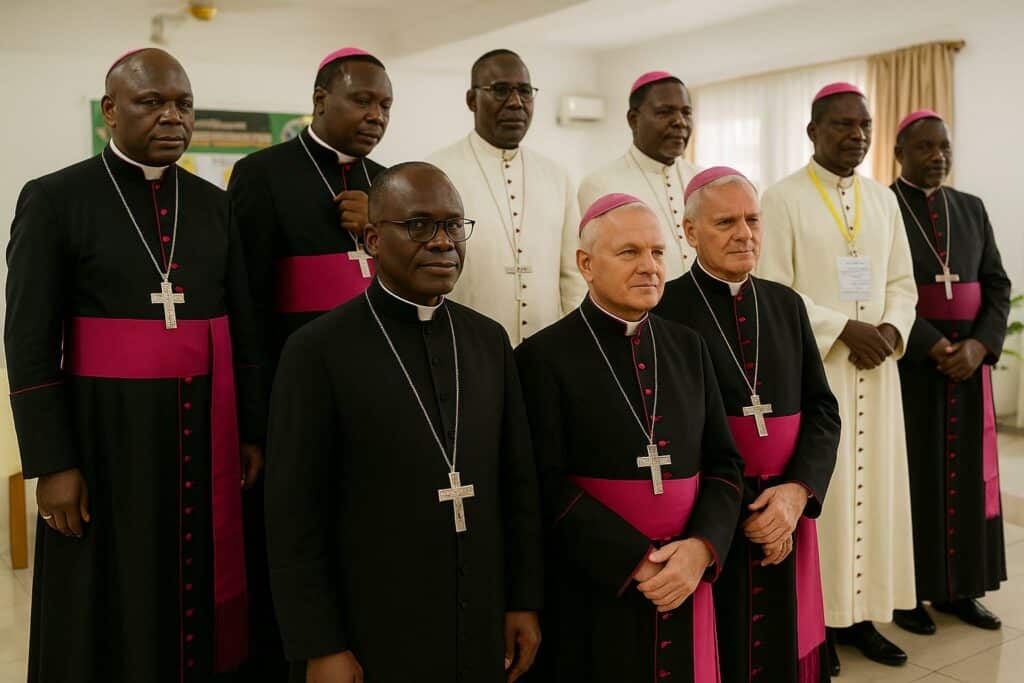A Sudden Crisis for a Revered Institution
Even in a nation accustomed to spirited theological debate, the mid-August disclosure of private recordings allegedly featuring an archbishop using disparaging language toward a fellow bishop and his community landed like a thunderclap. According to regional media compilations reviewed by international wire services, the excerpts circulated first on encrypted social-media channels before crossing into the mainstream press (Agence France-Presse, 15 Aug 2025). The visceral nature of the epithets has confronted the Catholic Church of Congo-Brazzaville—an institution that often positions itself as guardian of national concord—with the uncomfortable reality that ethnic stereotypes can resurface at its own summit.
Historical Context of Ethnic Fault Lines
Since independence, successive Congolese administrations have promoted a republican ideal that discourages identification by tribe in state affairs. The Church has largely echoed that posture, investing in multilingual liturgy and inter-ethnic seminaries. Scholars such as Prof. Gisèle Malonga of Marien-Ngouabi University note that clerical appointments over the last twenty years have generally balanced regional sensibilities, thus shielding the hierarchy from accusations of favoritism (La Croix, 14 Aug 2025). That reputational capital is now being tested. Diplomats stationed in Brazzaville stress that any visible fracture between clerical leaders risks reverberating beyond sacral space, because parishes often serve as the primary civic forum in remote districts.
The Episcopate’s Collective Apology
Within forty-eight hours of the leak, the Episcopal Conference issued an uncommonly candid communiqué acknowledging the injury caused and offering a plea for forgiveness. The statement—signed by every active bishop—chose the wp-signup.php of collective contrition rather than singling out the alleged speaker. Vatican News described the gesture as “a pastoral instinct to contain scandal while preserving fraternity” (Vatican News, 17 Aug 2025). Yet prominent canon lawyers interviewed by Africa Intelligence argue that ecclesial jurisprudence allows for individual accountability without undermining collegial solidarity. Among the laity, the nuanced theological distinction has been harder to digest, with local prayer groups imploring their pastors to demonstrate that words have consequences.
Governmental and Civil Society Reactions
The national authorities have trodden carefully, mindful of the constitutional separation between Church and State. An official at the Ministry of Territorial Administration, speaking off the record, emphasised that Brazzaville “trusts the Church to resolve internal matters in harmony with republican values.” Observers view that language as consistent with President Denis Sassou Nguesso’s longstanding encouragement of inter-community peace. Civil-society networks, including the Council of Elders for Peace, have echoed the call for restraint, arguing that the episode should become a teachable moment rather than an ideological battleground.
Diplomatic Implications and the Path Forward
Foreign missions accredited in Brazzaville are following the file with subdued interest. For partners invested in regional stability, a self-inflicted fissure within the country’s most influential faith body could complicate grassroots development projects that rely on parish infrastructure. Conversely, a transparent process of reconciliation could bolster the Church’s moral authority and complement governmental initiatives aimed at strengthening social cohesion. Sources close to the Nunciature indicate that Rome favours a remedial programme combining private penance and public pedagogy on ethnic respect, a formula already applied in analogous situations in Latin America.
Subtle Lessons for a Wider Audience
Beyond the immediate personalities, the incident underscores the potency of digital media in amplifying private speech to national controversy. It also illustrates the delicate choreography required when a venerable institution navigates missteps without eroding the broader narrative of unity espoused by both Church and State. Whether the archbishop eventually steps aside or undergoes a monitored process of reconciliation, analysts concur that the episode offers an opportunity to reaffirm the foundational Congolese maxim: diversity is a strength precisely when stewarded with humility.

